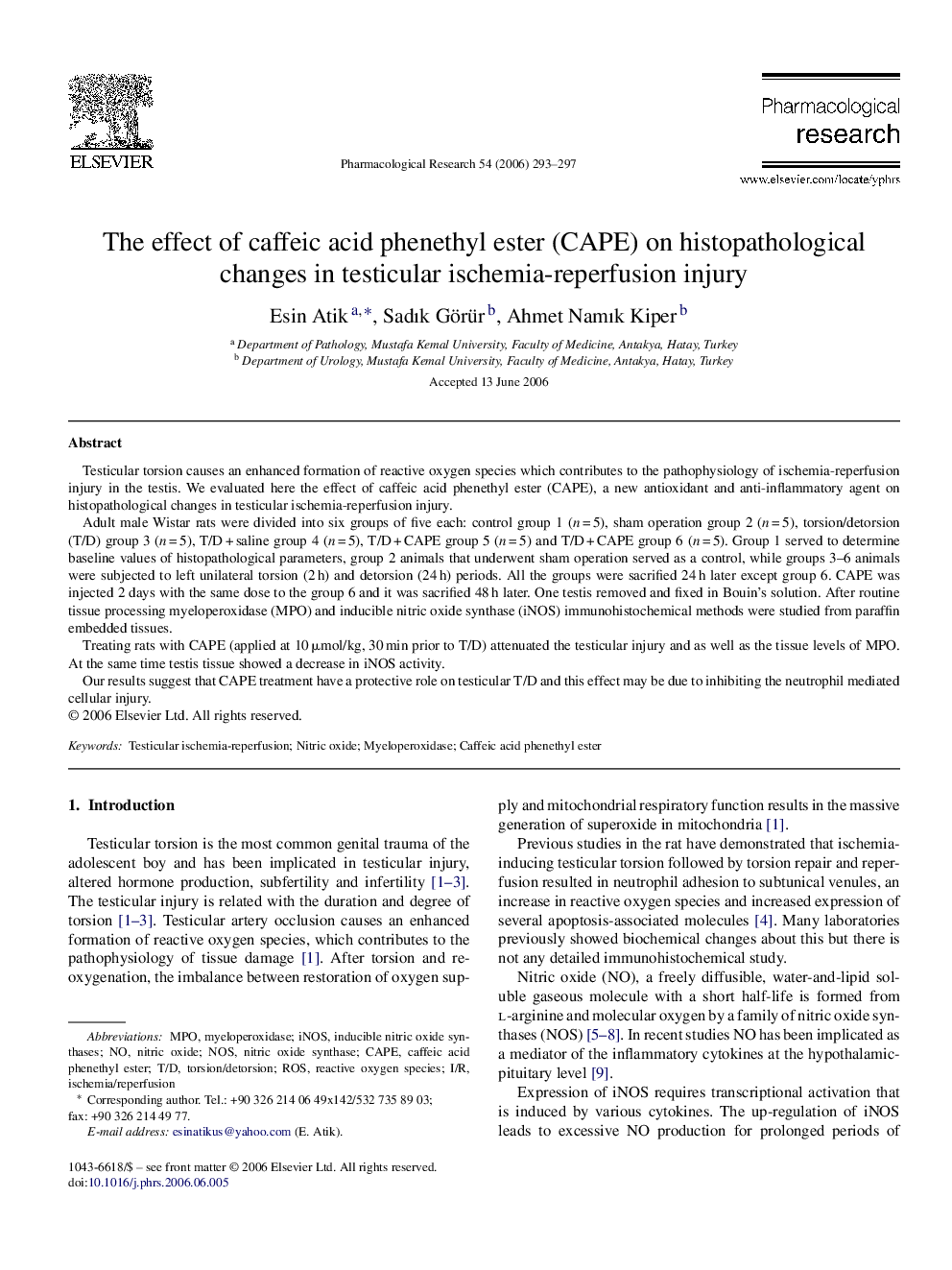| Article ID | Journal | Published Year | Pages | File Type |
|---|---|---|---|---|
| 2561567 | Pharmacological Research | 2006 | 5 Pages |
Testicular torsion causes an enhanced formation of reactive oxygen species which contributes to the pathophysiology of ischemia-reperfusion injury in the testis. We evaluated here the effect of caffeic acid phenethyl ester (CAPE), a new antioxidant and anti-inflammatory agent on histopathological changes in testicular ischemia-reperfusion injury.Adult male Wistar rats were divided into six groups of five each: control group 1 (n = 5), sham operation group 2 (n = 5), torsion/detorsion (T/D) group 3 (n = 5), T/D + saline group 4 (n = 5), T/D + CAPE group 5 (n = 5) and T/D + CAPE group 6 (n = 5). Group 1 served to determine baseline values of histopathological parameters, group 2 animals that underwent sham operation served as a control, while groups 3–6 animals were subjected to left unilateral torsion (2 h) and detorsion (24 h) periods. All the groups were sacrified 24 h later except group 6. CAPE was injected 2 days with the same dose to the group 6 and it was sacrified 48 h later. One testis removed and fixed in Bouin's solution. After routine tissue processing myeloperoxidase (MPO) and inducible nitric oxide synthase (iNOS) immunohistochemical methods were studied from paraffin embedded tissues.Treating rats with CAPE (applied at 10 μmol/kg, 30 min prior to T/D) attenuated the testicular injury and as well as the tissue levels of MPO. At the same time testis tissue showed a decrease in iNOS activity.Our results suggest that CAPE treatment have a protective role on testicular T/D and this effect may be due to inhibiting the neutrophil mediated cellular injury.
